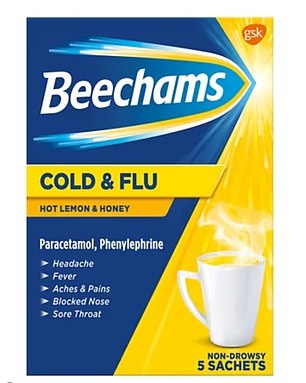Dozens of popular cold and flu remedies should be pulled from Britain’s shelves because they do not work, experts urged today.
Yesterday, US health officials proposed getting rid of oral medications containing the decongestant phenylephrine over fears they are “ineffective” and a waste of money for Americans.
If accepted, it could lead to the discontinuation of popular over-the-counter tablets and pills across the Atlantic, in a move that would send shockwaves through the multibillion-dollar industry.
Now experts are calling for the same to happen in Britain, arguing that UK customers are being deceived by the pharmaceutical companies behind “useless” drugs, including Sudafed, Benadryl, Lemsip and Beechams.
But UK regulators are refusing to take action because they say “no new safety issues have been identified”.
Dr Leyla Hannbeck, chief executive of the Association of Independent Pharmacies, told MailOnline: “It is time for our regulators to step in and provide guidance to help all pharmacists make a properly informed professional decision.
“The debate over the effectiveness of phenylephrine as an oral decongestant has been going on for some time and now the science appears to show that it is not effective, while there are many other products available for nasal congestion.”
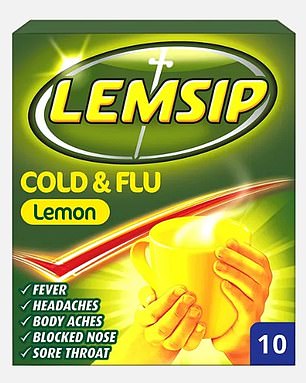
Brands such as Sudafed, Benadryl, Lemsip and Beechams sell orally administered medicines containing phenylephrine in Britain for around £5.
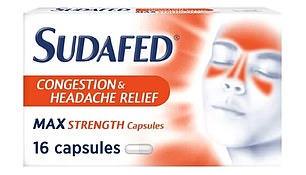
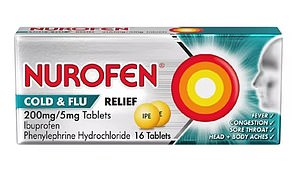
Yesterday, US health officials proposed completely ditching oral medications containing phenylephrine over fears they are “ineffective” decongestants.
The concern is specific to oral formulations of phenylephrine rather than nasal sprays containing the ingredient, which cost around £5.
Professor Ron Eccles, who ran Cardiff University’s Common Cold Center before retiring from the university in 2017, also previously told MailOnline: “When taken orally phenylephrine It is an ineffective decongestant because it is metabolized in the intestine and liver before reaching the nose.
‘My view is that (oral) phenylephrine products should be discontinued in the UK as they do not decongest.
“However, nasal decongestant sprays are effective and work within minutes and the decongestant effect lasts eight hours.”
Manufacturers claim that phenylephrine relieves nasal congestion by reducing inflammation of the small blood vessels inside the nasal passages, creating more space for air to pass through.
The NHS watchdog, the National Institute for Health and Care Excellence, says that orally administered decongestants “may relieve nasal congestion in the short term.”
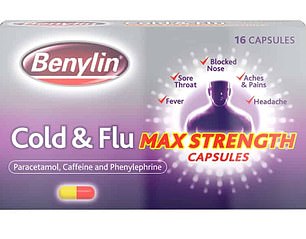
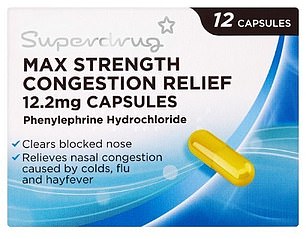
Manufacturers claim that phenylephrine relieves nasal congestion by reducing inflammation of the small blood vessels inside the nasal passages, creating more space for air to pass through.
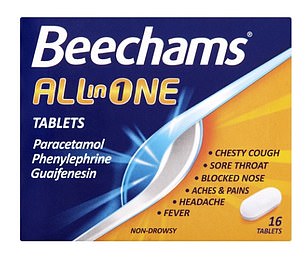
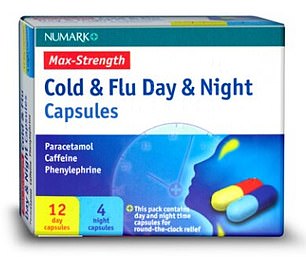
Manufacturers claim that phenylephrine relieves nasal congestion by temporarily shrinking the small blood vessels inside the nasal passages, creating more space for air to pass through. Dilated blood vessels can cause nasal congestion. NHS watchdog the National Institute for Health and Care Excellence says orally administered decongestants “may relieve nasal congestion in the short term”. However, this effect “does not last more than a few days and the benefit is relatively small.” In the image, two of the orally administered medications contain phenylephrine.
However, this effect “does not last more than a few days and the benefit is relatively small.”
Other reviews have found that only in nasal spray form does phenylephrine seem to work, as it ensures that the medication is administered directly into the nose.
But the Medicines and Healthcare products Regulatory Agency (MHRA), which monitors the safety of medicines used in Britain, confirmed today that it was not assessing the ingredient, as “no new safety concerns have been identified”.
Dr Alison Cave, MHRA chief safety officer, told MailOnline: ‘Patient safety is our top priority.
‘All available data are carefully considered when authorizing any medicine and we continue to closely monitor the safety and effectiveness of all medicines after authorisation, to ensure that the benefits outweigh any risks.
‘No new safety problems have been identified with products containing phenylephrine and people can continue to use them as directed.
“If you have any questions about a medication you are taking, seek the advice of a health professional.”
The US Food and Drug Administration It began reviewing the use of phenylephrine in March 2023.
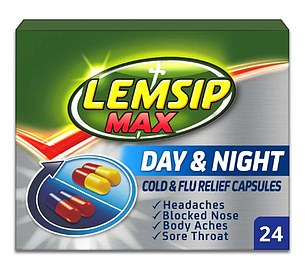
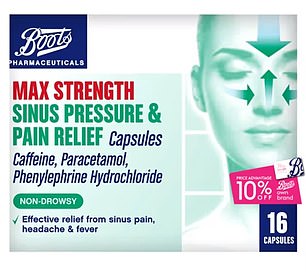
But the Medicines and Healthcare products Regulatory Agency (MHRA), which monitors the safety of medicines used in Britain, confirmed today that it was not assessing the ingredient, as “no new safety concerns have been identified”.
Yesterday, Dr. Patrizia Cavazzoni, director of the FDA’s Center for Drug Evaluation and Research, said, “The FDA’s role is to ensure that drugs are safe and effective.”
“Based on our review of the available data, and in accordance with the advice of the advisory committee, we are taking the next step in the process to propose the elimination of oral phenylephrine because it is not effective as a nasal decongestant.”
Currently, this is only a “proposed order” and will not have an immediate impact on the medications.
The FDA is now seeking public input on the matter.
Only then, if the review determines that phenylephrine is ineffective, will a final order be issued to remove it from over-the-counter medications.
Yesterday, the FDA said it would then “provide manufacturers additional time to reformulate or remove” their phenylephrine-only products from the market.
They added: “The proposed order is based on effectiveness concerns, not safety concerns.”
However, the FDA’s phenylephrine proposal is not the first time questions have been raised about the effectiveness of over-the-counter cold remedies.
In 2014, the Cochrane Institute, which conducts the “gold standard” of evidence-based reviews, found that there was “no strong evidence for or against the effectiveness of over-the-counter medicines for acute cough” in the United Kingdom.
Phenylephrine medications were among the medications included.
In 2015, a study Sponsored in part by New Jersey-based pharmaceutical company Merck & Co, it found that the 10-milligram dose, as well as doses of 20, 30, or 40 milligrams “were not significantly better than placebo in relieving nasal congestion.” in a sample of 539 adults. .

